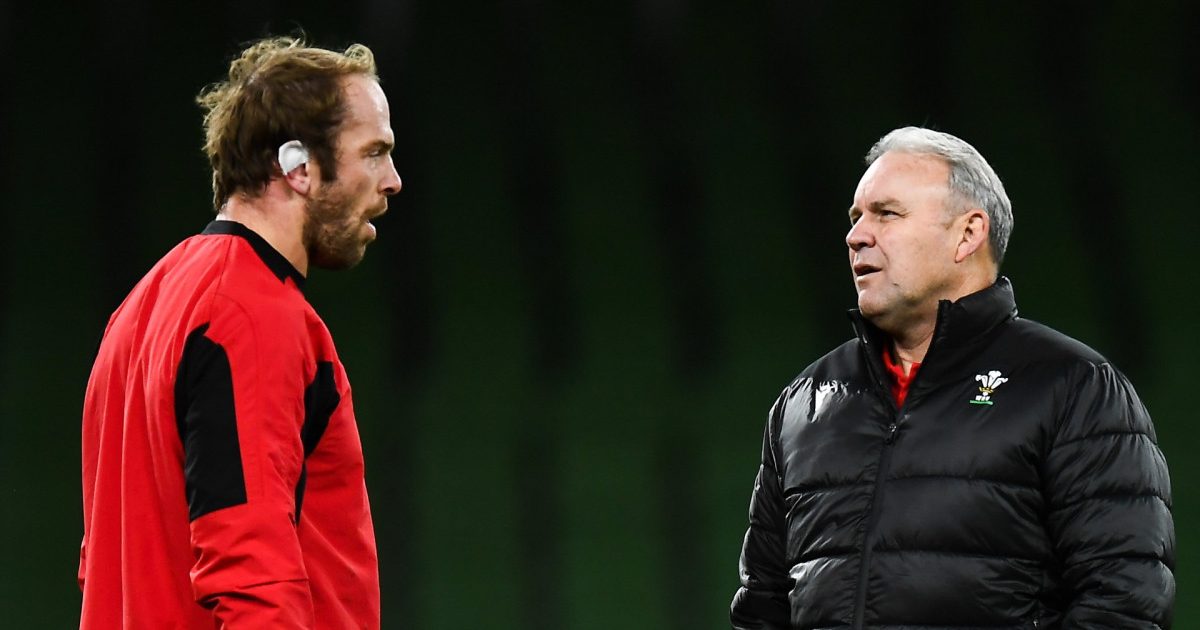Wayne Pivac insists he hasn't lost the Wales dressing room, provides evidence supporting his claim

If there was one relief for Wayne Pivac in Dublin on Friday night, it was how the plug was quickly pulled on the Wales post-match media interrogation. In these socially distanced times, there was no sitting in a packed press room for 15 minutes or more, answering enough questions to fill a book.
Instead, it was a short, sharp online inquisition, one called to a halt less than seven minutes in by the show-running Irish media officer who mercifully allowed Pivac to catch a break so that Ireland coach Andy Farrell could be ushered into the chair not long after and everyone could get out the exit gate just that bit quicker after a too one-sided match.
New Wales boss Pivac has, of course, enjoyed better days at the Aviva Stadium. It was there, 32 months after Scarlets had been destroyed by Leinster just up the road at the RDS on the Kiwi’s first away day in charge in September 2014, that a PRO12 title was collared with the most sumptuous running rugby.
We know from that particular turnaround that he has coaching smarts to get a job successfully done. However, the trouble with Test rugby compared to club level is that patience is a very different commodity, something in very short supply.
Just ask Welsh skipper Alun Wyn Jones. Quizzed on how likely Wales fans wouldn’t take likely react to this sixth loss on the bounce, he shot back: “One defeat isn’t enough back home so there lies your answer.”
Relive the moments of tonight’s game here! ??#AutumnNationsCup https://t.co/YaVDiuryCJ
— Autumn Nations Series (@autumnnations) November 13, 2020
It’s not that there haven’t been Welsh doldrums of recent vintage. Eight successive games were lost after winning the 2012 Grand Slam, a desperate set of results that eventually gave way to a Six Nations title win in 2013.
It’s just that under Pivac, the green shoots signalling a Wales improvement is only just around the corner are terribly hard to spot. He clutched the straw that was obvious in Dublin, how Wales only gave up one try before the 80th-minute second concession against an Ireland side that dominated possession and territory.
To Pivac, this was evidence that he hadn’t yet lost the dressing room. “The thing for coaches in these situations is the vibe in the changing room, the vibe in amongst the players, and if you look in the changing room you’d see a disappointed team but a team that had put in a hell of a shift,” he insisted.
“We had asked for that after the Scottish performance and the work we put in without the ball, that speaks volumes.”
How long, though, will that attitude hold in an increasingly ruthless climate where Pivac sacked his own hand-picked defence coach Bryon Hayward last weekend and then unceremoniously hauled off his crumpling loosehead Rhys Carre before a 39th-minute scrum five metres from the Wales line.
“It’s not about individuals, it’s about doing what we think is best for the team at the time,” he said, referencing how Carre was embarrassingly given the shepherd’s crook and hauled to the bench, his only solace being there wasn’t a crowd of 50,000 present watching his mortification.
“The set-piece was under pressure, we had a scrum on our line and we didn’t want to concede before half-time. We made the change and we didn’t concede,” quipped Pivac, holding firm.
Next weekend’s plan for Georgia in Llanelli was always to ring multiple changes and explore the depth of the Wales squad. Pivac staggered out of Dublin insisting that this blueprint won’t change even though the premium on getting a pressure-relieving win is now even more acute.
PLAYER RATINGS
Here's how we rated the Welsh players after another worryingly flat performance. #IREvWAL #AutumnNationsCuphttps://t.co/40rcSXq9zS
— RugbyPass (@RugbyPass) November 13, 2020
Lose and you have to imagine he could well be turfed out, regardless of the financial issues that would come with a broken contract for a WRU that have been juggling to keep the show on the road in the pandemic.
Four lost lineouts, four lost scrums on, 18 penalties conceded, no tries scored… the list of negatives from Friday night went on and on and was lengthy. “We have got a few games now to look at if there are any patterns emerging in terms of individuals that are making errors. We’ll look at that.
“They are bitter pills to swallow for everybody because we are helping the opposition and giving them too many easy ins and we’re hurting ourselves. It’s something we will work very hard to rectify as soon as we can.
“We’re looking to change what has been done for over ten years and change mindsets,” he added, pleading for some understanding about the post-Gatland crisis he is now firefighting in the Autumn Nations Cup after a forgettable Six Nations.
“It doesn’t happen overnight in my experience and it’s something we will continue to work towards because we believe in it. The players are working very, very hard. From our point of view, it’s roll your sleeves up on Monday. We’re not giving up on this, it’s not the World Cup – we’re working towards the World Cup and it’s going to take time.”
That is something he could be increasingly running out of, though, after another dissatisfactory outing.
All too easy in the end for Ireland #IREvWAL #AutumnNationsCup https://t.co/yDdnZcqUr6
— RugbyPass (@RugbyPass) November 13, 2020





























